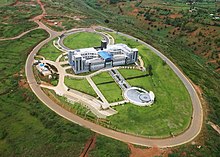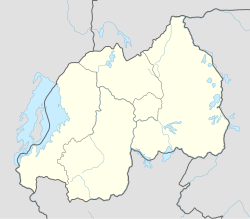 | |
| Type | Private graduate engineering school |
|---|---|
| Established | 2011 |
| Director | Conrad Tucker |
| Address | Regional ICT Center of Excellence Bldg , Kigali Innovation City - Bumbogo BP 6150, Kigali, RwandaKigali , Rwanda 1°56′06″S30°09′31″E / 1.935111°S 30.158601°E |
| Website | africa |
Carnegie Mellon University Africa (CMU-Africa) is an overseas campus of the College of Engineering of Carnegie Mellon University, located in the Kigali Innovation City, Kigali, Rwanda, East Africa. [1]

